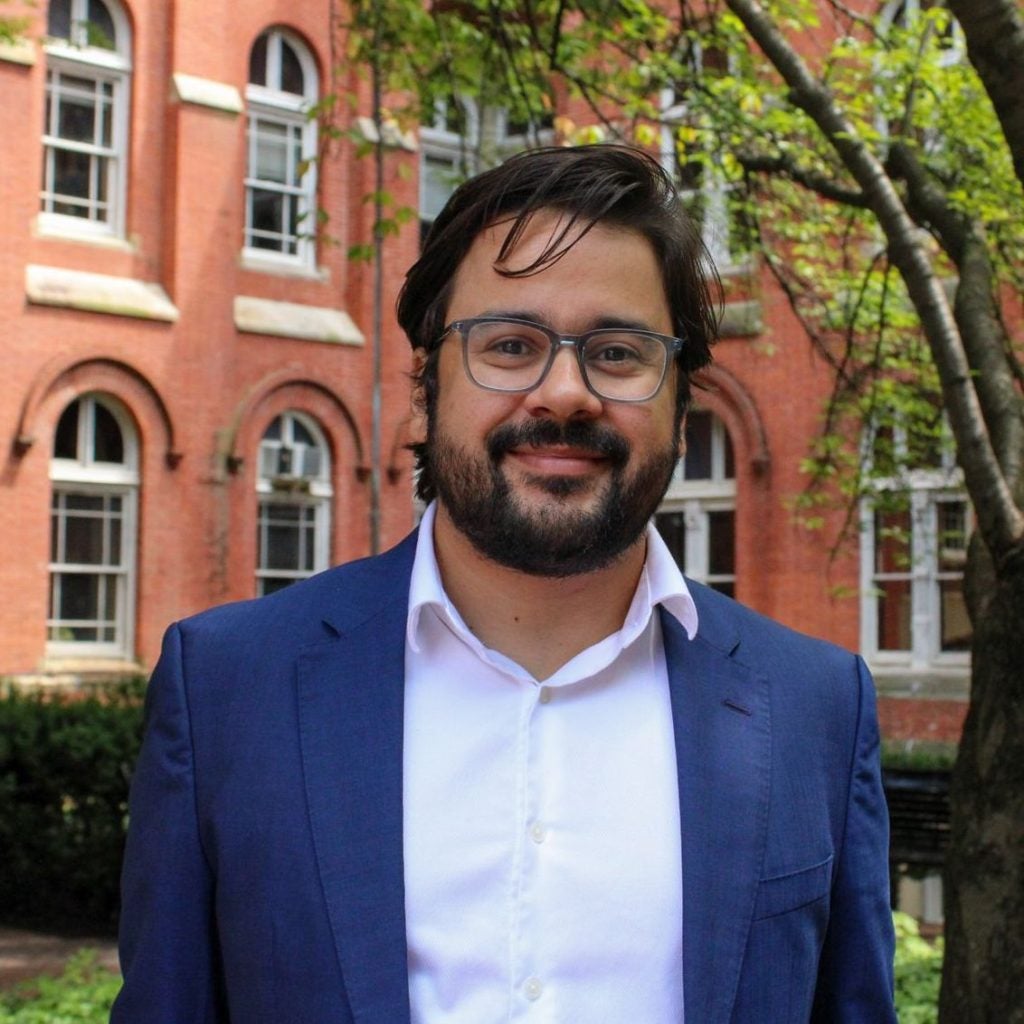Tech & Public Policy grantee is bridging the misinformation gap in the Global South
McCourt School of Public Policy Assistant Professor Tiago Ventura was double-awarded by the American Political Science Association for his co-authored research on the effects of reducing exposure to misinformation on WhatsApp in the lead-up to Brazil’s 2022 presidential election.

Tiago Ventura is an assistant professor at Georgetown University’s McCourt School of Public Policy and a Tech & Public Policy grantee. His research calls on scholars to adopt a more global perspective on how social media affects people’s lives.
Tiago Ventura, an assistant professor in computational social science at the McCourt School of Public Policy and a Tech & Public Policy (TPP) grantee, was twice-awarded by the American Political Science Association (APSA) for his co-authored research on exposure to misinformation on social media. Ventura and fellow researchers at New York University, Rajeshwari Majumdar, Jonathan Nagler and Joshua Tucker, won Best Paper in APSA’s section on Information Technology and Politics and APSA’s Paul Lazarsfeld Best Paper Award in Political Communication.
“As academics, we are often more used to rejections than getting awards. So, as a junior scholar, receiving this type of recognition of my work is truly an incredible incentive to keep moving forward,” said Ventura.
This year, voters in more than 60 countries will head to the polls. With nearly 50% of the world’s population participating in national elections, Ventura’s research and primary focus on the Global South is timely. His award-winning analysis focuses on the effects of spreading misinformation through WhatsApp, a leading social media messaging platform in many Global South countries. In this study, participants in Brazil were asked to turn off the automatic download of multimedia, such as images, videos, documents and audio, which they received on WhatsApp in the three weeks leading up to the country’s general election.
The study’s results show that this intervention significantly reduced participants’ exposure to false, widely circulated rumors during the election. However, the researchers did not find that this reduction had notable effects on people’s beliefs in misinformation, polarization or overall well-being. These findings are consistent with similar conclusions from recent studies of Facebook and Instagram’s impact during the 2020 U.S. presidential election: Simple adjustments to how users engage with social media platforms are insufficient to impact important political attitudes.
With this research, Ventura has helped bridge the gap in academic scholarship on misinformation on social media in African, Asian and Latin American countries. “While most users in the Global South say WhatsApp is the main platform on which they see misinformation, we have very little research on WhatsApp and social media messaging apps in general because research has mostly focused on rich and industrialized countries,” he said.
“This research calls on social media and communication scholars to look outside the United States and adopt a more global perspective on how social media affects people’s lives. In some sense, receiving these two awards also recognizes the importance of more research about and with scholars from the Global South,” added Ventura.
The Tech & Public Policy program has generously funded an extension of Ventura’s research study so that he and his team can broaden their examination to India and South Africa. Ventura is also conducting misinformation research on the 2024 U.S. presidential election with fellow Georgetown researchers Lisa Singh, a professor at the McCourt School and director of the Massive Data Institute, and Leticia Bode, research director of the Knight-Georgetown Institute. With support from the TPP Grants Program, they will analyze the extent to which content shared on social media about the general election is true or misleading and whether it is perceived as human.
